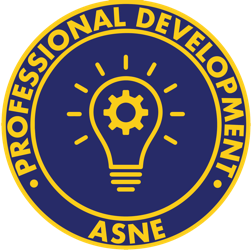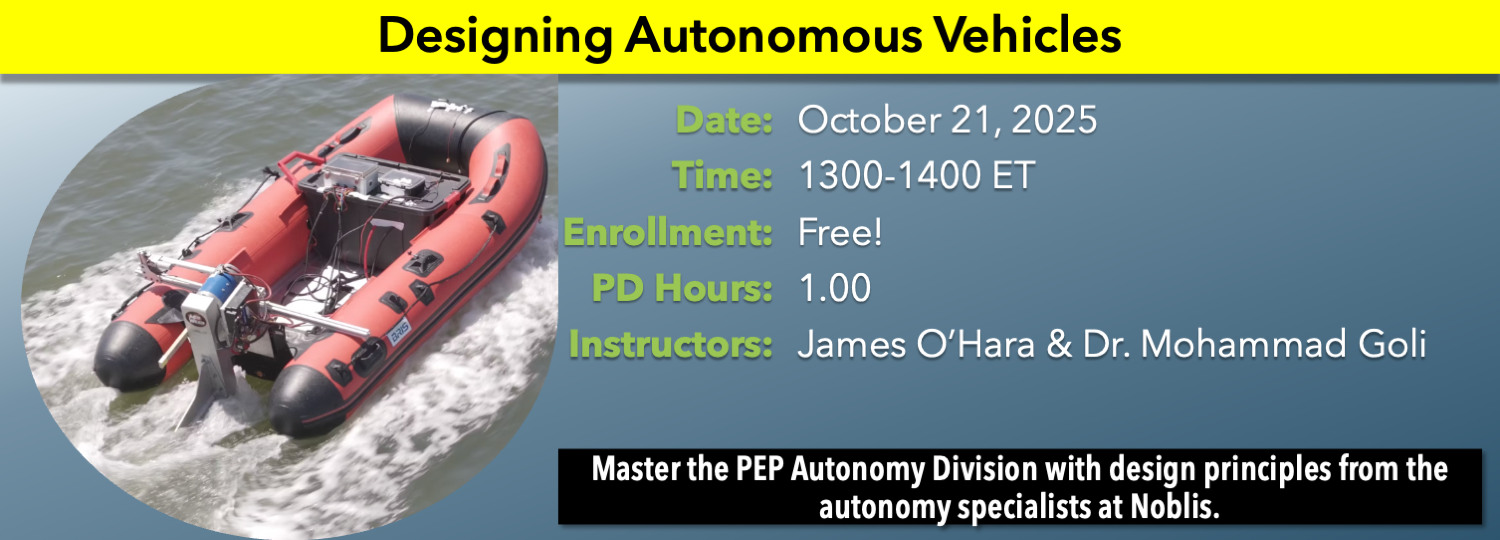Designing for Autonomy
Overview:
Noblis is pushing autonomous designs forwards in many directions across multiple
domains. As PEP26 students prepare your boats for
the upcoming two-mile autonomy race, take your designs to the next level by joining this webinar, led by
experts, Mr. James O'Hara and Dr. Mohammad Goli. This session will explore how real-world leaders in
autonomy testing, validation, and swarm coordination see unmanned systems and how they would design these
systems to maximize their usefulness. You’ll learn how to design components for future success, coordinate
systems, test/improve craft, and safely operate your craft. These skills that directly translate to your
race strategy and future engineering careers. Don’t miss this opportunity to connect with innovators at the
forefront of autonomy research and gain insights that could set your team apart on race day and beyond.
Click here for the PDF of slide deck (PPT
here)
Date & Time: October 21, 2025 1300-1400 ET
Audience: All program managers,
engineers, executives, grant writers, and students interested in engineering maritime
systems.
Virtual Course Format: This presentation and discussion will occur in Microsoft Teams.
If you do not have Teams, you will be able to view this event in your browser.
Enrollment Fee:
FREE!
Professional Development Hours: 1.00 Hour (free for ASNE Members or $40 for
nonmembers). Please use the ASNE PDH
form and send it to education@navalengineers.org.)
Questions:
Please email education@navalengineers.org or call ASNE HQ
at (703) 836-6727.
Registration
is closed.


Noblis & Autonomy
Noblis is advancing the future of autonomous systems through research that
enables unmanned vehicles and machines to move beyond isolated functions toward coordinated, scalable,
and self-organizing operations. Noblis develops technologies that enhance collaboration, safety, and
trust among autonomous platforms.
A key focus is testing, evaluation, verification, and
validation—supported by Noblis’ patented approach to systematically managing earned trust.
This process relies on repeatable, real-world encounters where machines coordinate their actions,
secured by a **decentralized distributed ledger** that strengthens cybersecurity and operational
reliability.
In the realm of collaborative multi-agent systems and swarm autonomy,
Noblis’ research enables groups of autonomous systems to communicate, cooperate, and adapt in dynamic
environments. These advancements allow for efficient, resilient performance in complex missions such as
surveillance, exploration, and defense. As autonomous technologies become more integrated into human
environments, Noblis continues to design frameworks that promote safe, predictable, and trustworthy
interactions between humans and machines.
Registration is now closed. Please use the details at the top of the page.
Questions, comments, suggestions? Email us at education@navalengineers.org